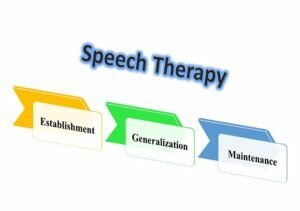
Establishment Generalization and Maintenance in Speech Therapy: Establishment Generalization and Maintenance are fundamental components of successful speech therapy, facilitating long-term progress and improved communication for individuals with speech difficulties. By incorporating evidence-based interventions, varied practice, and ongoing support, speech therapists empower their clients to overcome communication challenges and lead fulfilling lives.
As the field of speech therapy continues to evolve, the integration of technology and the collaborative efforts of families and professionals further enhance the efficacy of the therapy process. By recognizing the unique needs of each individual and implementing targeted approaches, speech therapists pave the way for better communication and speech development.
Establishment of Speech Therapy
When it comes to speech therapy, the establishment phase lays the foundation for the entire therapeutic journey. It involves the initial assessment, goal-setting, and planning to address the unique needs of each individual. During this stage, speech therapists work closely with their clients, understanding their strengths and challenges, and creating personalized intervention plans.
The first step in the establishment phase is conducting a thorough evaluation of the individual’s communication abilities. This assessment helps identify the specific speech or language disorders, articulation issues, fluency problems, or other communication difficulties. Once these challenges are identified, the speech therapist sets clear and measurable goals to target during therapy sessions.
In the establishment phase, rapport-building is crucial. A strong therapeutic relationship built on trust, empathy, and understanding allows the individual to feel comfortable and confident throughout the therapy process. The speech therapist fosters a positive and supportive environment, encouraging the client to actively participate and engage in therapy activities.
Generalization in Speech Therapy
Generalization is the bridge that connects the progress made in therapy sessions to real-life communication situations. It refers to the ability of the individual to apply newly acquired speech and language skills outside the structured therapy setting. Achieving generalization is a critical aspect of speech therapy success, as it ensures that the skills learned in therapy become functional and applicable in everyday life.
To facilitate generalization, speech therapists employ a variety of strategies. One common approach is promoting carryover activities, where the individual practices their communication skills in different environments, such as home, school, or social gatherings. This real-world practice helps consolidate learning and enhances the likelihood of successful generalization.
Furthermore, involving parents, caregivers, teachers, and other significant individuals in the therapy process can significantly contribute to generalization. By educating and training these individuals to support the individual’s communication needs, the chances of the individual applying their skills in various settings are significantly increased.
Maintenance of Progress after Speech Therapy
The maintenance phase of speech therapy is often the final stage of the therapeutic journey, but it is no less crucial than the establishment and generalization phases. Maintenance focuses on ensuring that the progress achieved during therapy is sustained over the long term, even after the formal therapy sessions have concluded.
To ensure successful maintenance, speech therapists develop tailored plans that encourage the individual to continue practicing their communication skills independently. These plans often include a range of engaging and motivating activities that allow the individual to keep honing their abilities.
In addition to independent practice, periodic follow-up sessions with the speech therapist are essential during the maintenance phase. These sessions serve as checkpoints to evaluate progress, address any challenges that may arise, and provide ongoing support and encouragement.
Generalization and Maintenance
The knowledge and implementation of the establishment, generalization, and maintenance phases are vital in speech therapy, but it’s equally important to disseminate this information effectively.
Establishment: Our articles on the establishment phase delve deep into the nuances of speech therapy assessment and goal setting. We highlight the importance of personalized intervention plans and emphasize the value of building strong therapeutic relationships.
Generalization: When it comes to generalization, our content offers valuable insights into the strategies that promote skill application in real-life scenarios. We provide practical tips on how to encourage carryover activities and involve significant individuals to support generalization.
Maintenance: In the maintenance phase, our articles focus on the sustainability of progress achieved during therapy. We share effective methods to motivate individuals to continue practicing their communication skills independently and how periodic follow-up sessions can play a pivotal role in successful maintenance.
Conclusion
Establishment, generalization, and maintenance are three critical pillars of success in speech therapy. By laying a strong foundation, promoting skill application in real-life settings, and ensuring sustained progress, speech therapists can make a significant impact on the lives of their clients.
Frequently Asked Questions
What is the establishment phase in speech therapy?
The establishment phase in speech therapy is the initial stage where speech therapists assess an individual’s communication abilities, set clear and measurable therapy goals, and build a strong therapeutic relationship. It lays the foundation for the entire therapeutic journey.
Why is rapport-building important in the establishment phase of speech therapy?
Building rapport is crucial because it fosters trust, empathy, and a positive environment, making the individual feel comfortable and confident throughout the therapy process. It encourages active participation and engagement in therapy activities.
What is a generalization in speech therapy, and why is it important?
Generalization in speech therapy refers to the ability of an individual to apply newly acquired speech and language skills in real-life communication situations. It is crucial because it ensures that the skills learned in therapy become functional and applicable in everyday life.
How can speech therapists facilitate generalization in speech therapy?
Speech therapists facilitate generalization by promoting carryover activities, where the individual practices their communication skills in different environments. They also involve parents, caregivers, teachers, and other significant individuals in the therapy process to support the individual’s communication needs.
What is the maintenance phase in speech therapy, and why is it important?
The maintenance phase focuses on sustaining the progress achieved during therapy over the long term, even after formal therapy sessions have concluded. It is important to ensure that the individual continues to improve their communication skills independently.
What strategies are used in the maintenance phase of speech therapy to encourage continued progress?
Strategies in the maintenance phase include developing tailored plans with engaging activities for independent practice. Additionally, periodic follow-up sessions with the speech therapist serve as checkpoints to evaluate progress and provide ongoing support.
How can technology and collaborative efforts enhance speech therapy?
Technology and collaborative efforts can enhance speech therapy by providing innovative tools and resources for therapy sessions and involving family members and professionals in supporting the individual’s communication development. This collaborative approach can lead to more effective outcomes.
What is the role of caregivers and significant individuals in speech therapy?
Caregivers and significant individuals play a crucial role in speech therapy by supporting the individual in practicing their communication skills, providing a conducive environment for learning, and participating in therapy activities recommended by the speech therapist.
How can speech therapists ensure successful generalization and maintenance in the long term?
To ensure successful generalization and maintenance, speech therapists should develop individualized plans, provide ongoing support, and encourage independent practice. Regular follow-up sessions can help assess progress and address any challenges that may arise.
Where can I find more information on the establishment, generalization, and maintenance phases of speech therapy?
You can find more information on these phases in articles that delve into the details of each stage. Check out resources that focus on assessment, goal-setting, generalization strategies, and methods for maintaining progress in speech therapy.
References:
- Treatment Resource Manual for speech-language pathology 5th edition Froma P. Roth, colleen K. wor [Book]
- Clinical Methods and Practicum in Speech-Language Pathology M. N. Hegde, Ph. D.Deborah Davis, M.A [Book]
- Assessment in Speech Language Pathology A Resource Manual 5th Edition, Kenneth G. Shipley, Julie G. McAfee [Book]
- Introduction to communication sciences and disorders – Gary Weismer, David K. Brown [Book]
You are reading about:
Establishment Generalization and Maintenance in Speech Therapy







0 Comments